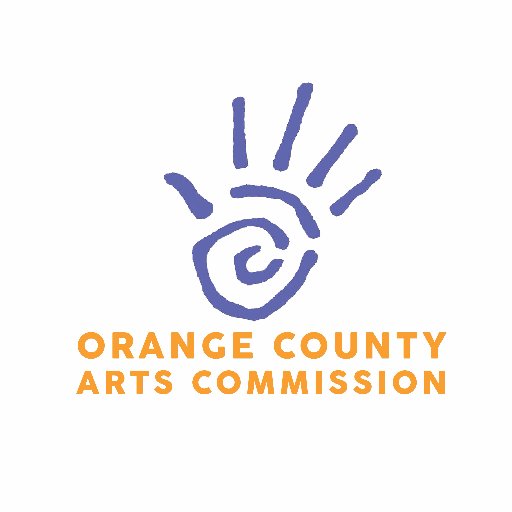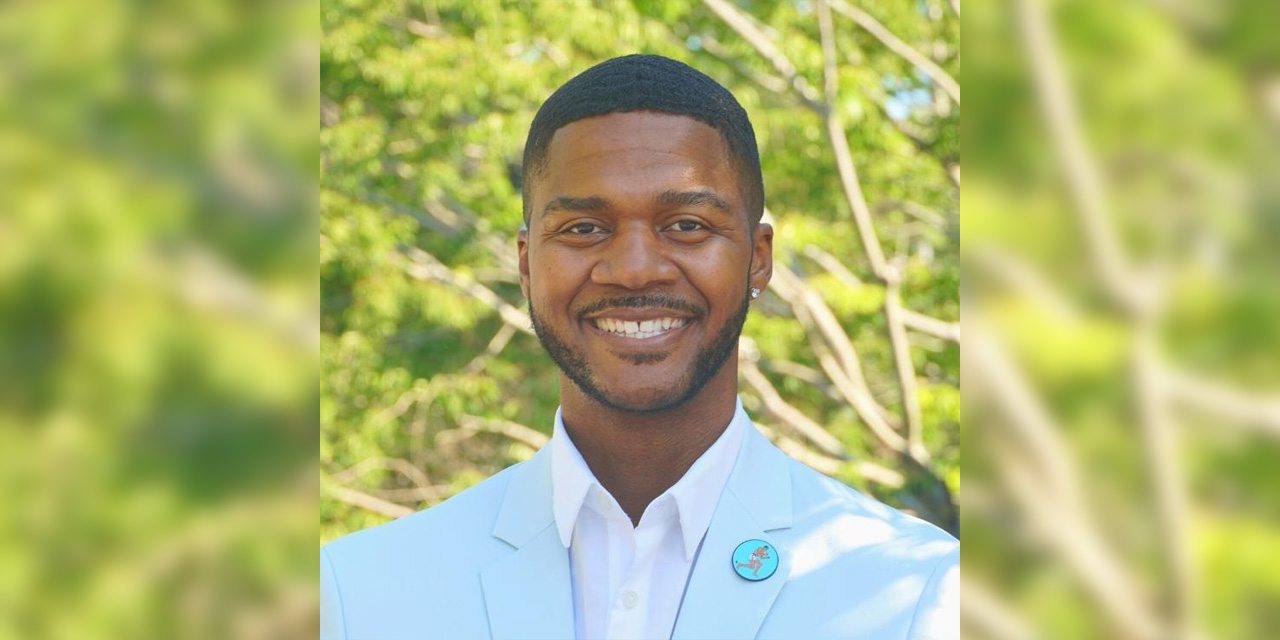Story via Arshia Simkin, The Underline, Orange County Arts Commission
(featured photo via the UNC Department of Music)
In the mid-nineties, Donovan Livingston, who is now Chapel Hill’s 2025-2026 Poet Laureate, heard a song that would change his life. Growing up with a grandmother who was a church choir director, Livingston was surrounded by music and fascinated by hip hop, but he wasn’t allowed to listen to rap music. “It always felt like I was risking life and limb to try to listen to music that my parents tried to keep me from,” Livingston joked. Despite these restrictions, Livingston did seek out rap music; when he first heard the rapper Nas’ “If I Ruled the World (Imagine That)” for the first time, “that song unlocked something in me that allowed me to see poetry as a mechanism for articulating my ideas about myself, about the world, about changes I wanted to see,” he said. This exposure to music “really made me appreciate how we as Black folks have been able to tell our journey through sound and how sound lays a framework for our capacity for storytelling,” Livingston added.
This connection between music and poetry has been a throughline in Livington’s work: his own 2020 album, titled “Molasses,” explores similar themes relating to the complexities and joys of growing up Black in the South. “Molasses is thick, it’s heavy, it’s viscous, it’s really challenging to get through, but at the end of the day—it’s really sweet. For me, that’s what it means to be who I am in a place like this: to love the beauty and the journey, wherever it may take you,” Livingston said.
In his professional life, too, Livingston regularly engages with both poetry and music as the Director of College Thriving and a professor in the music department at UNC-Chapel Hill. His poetry focuses on “lived experiences, stories from my childhood, really reflecting on my parent’s experience growing up in the Jim Crow South,” Livingston said. He noted that he tries to understand the ways in which his parents’ history has shaped his own trajectory and to explore “what it meant to grow up as a Black boy in the South in the eighties and nineties.”
In addition to exploring identity, Livingston—who has three children, aged five, three, and one—said that he has also started to write about fatherhood. “They are a light, a joy, and balls of chaos,” he said, with a laugh. “I’ve been more intentional about writing about what has shifted within me, since becoming a dad…there’s a new region of my spirit that exists within me,” he added.
Poetry has been a constant in Livingston’s life and allowed him to build community at every stage: from his master’s degrees at Columbia and Harvard universities to his Ph.D. at UNC-Greensboro, he said that poetry “grounded” him and helped him find like-minded people. In 2012, in the wake of the killing of Trayvon Martin, Livingston was teaching at an all-boys school in the Bronx, which was attended largely by Black and Latino students: “poetry was a mechanism not only for healing for us, but really meaning-making because [the students] are having to negotiate their own identities when they step out into the world,” Livingston said.
As Chapel Hill poet laureate, Livingston is excited about two initiatives: the first is “Rough Drafts” a monthly meeting in which attendees bring unfinished pieces of writing to share and get feedback on; the second is “Mix Tapes,” which, according to chapelhillarts.org, invites “Triangle-area creative writers, poets, emcees, lyricists, and storytellers…to write and read their own poems” in response to one of four prompts centered on the experience of living in Chapel Hill.
Reflecting on his poetic journey, Livingston said: “Poetry builds communities in ways that I wasn’t prepared for but that I knew would happen if I stuck to it.”
Learn more about Livingston on his Facebook and Instagram at @dlive87 and at https://music.unc.edu/people/musicfaculty/donovan-livingston/ and https://www.chapelhillarts.org/poetlaureate/donovan-livingston/
 Chapelboro.com has partnered with the Orange County Arts Commission to bring more arts-focused content to our readers through columns written by local people about some of the fantastic things happening in our local arts scene! Since 1985, the OCAC has worked to to promote and strengthen the artistic and cultural development of Orange County, North Carolina.
Chapelboro.com has partnered with the Orange County Arts Commission to bring more arts-focused content to our readers through columns written by local people about some of the fantastic things happening in our local arts scene! Since 1985, the OCAC has worked to to promote and strengthen the artistic and cultural development of Orange County, North Carolina.



